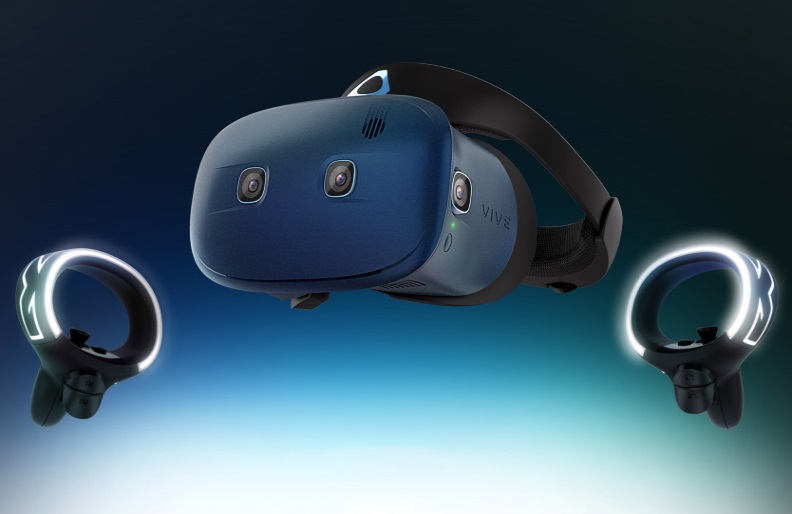In a call-to-action for developers creating content for the company’s next VR HMD, HTC has revealed plans to release the Vive Cosmos in Q3 2019. That window of release means the Cosmos could be in consumer homes sometime in July, August or September. The team has dedicated resources for two months of testing for content being updated to work with the headset, so that likely narrows things down to late August or September.
HTC claims Cosmos has its “sharpest yet” screens. For the reason that the Vive Pro used 1440×1600 OLED panels, this might imply it uses the JDI 2160×2160 panels the HP Reverb makes use of.
In addition to an improved screen, the Cosmos features inside-out tracking and redesigned Vive controllers that resemble the sleek, more compact designs of the Oculus Touch and Index controllers.
The controllers were redesigned, bearing a resemblance to the new Oculus Touch controllers for Rift S and Quest. And just like the Touch controllers, those new controllers use thumbsticks, no longer trackpads.

Like any HTC headsets, Cosmos options mechanical IPD adjustment. It connects to the PC with a cable– it’s not yet identified whether or not the Vive wireless adapter can be suitable.
Like the Oculus Rift S to the standard Rift, the HTC Vive Cosmos will be able to take advantage of the same library of games the Vive Pro can access. It’s fully backward compatible with SteamVR titles and you can use your Viveport subscription with it as well.
The most curious thing about the Cosmos is how HTC is framing it as a modular device. The webpage says the headset is future-proof with “modular customization.” There’s a lot we don’t know about the Cosmos just yet so, hopefully, HTC will explain what this means in the near future.
Within the latest wave of PC-powered virtual reality HMDs, the price runs from $400 for the new Oculus Rift S all the way to the $1000 Valve Index.
These bells and whistles probably mean the price will be between $600 and $900 and that lower end is being really generous. HTC released another virtual reality headset recently, the Vive Pro Eye, but it’s an enterprise-focused device with a $1600 price tag.
This is HTC’s long-awaited refresh of its consumer line of VR headsets and there’s an opportunity to make a splash. Something closer to the Rift S than the Index would certainly do just that.


One comment